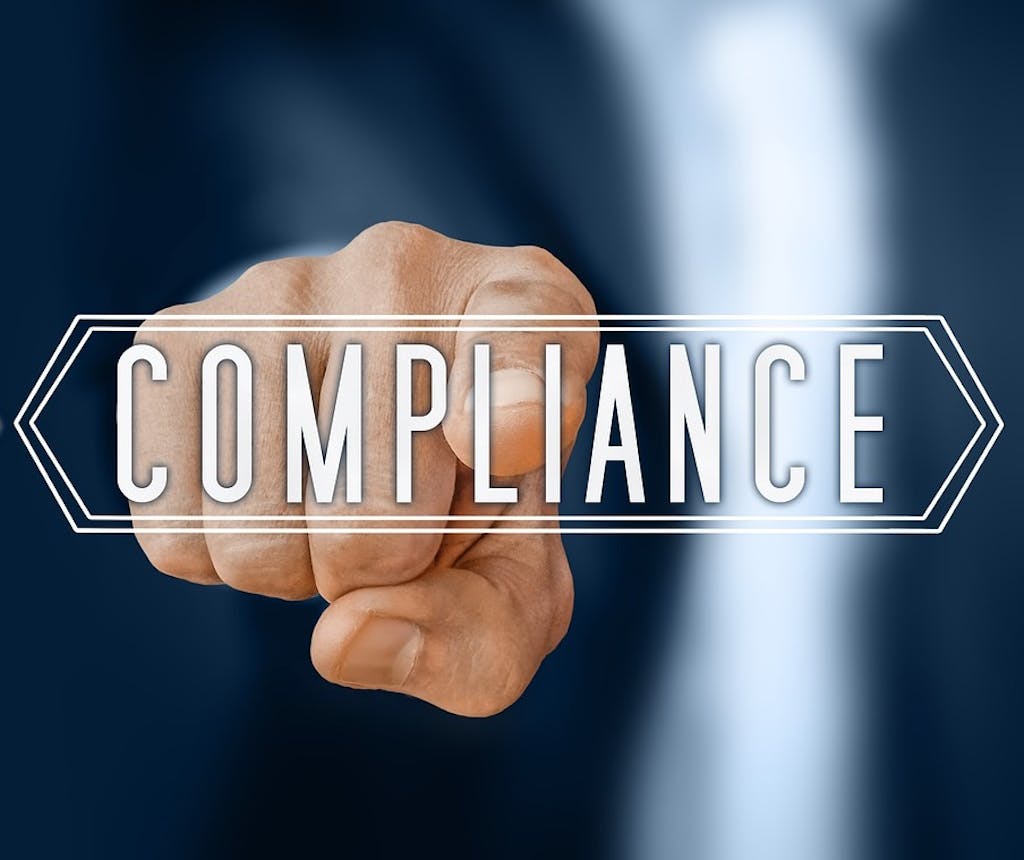Government regulations exist to keep citizens safe, ensure fair labor and business practices, and protect sensitive personal information.
In 2022, all industries are regulated to some degree, and adhering to these regulations is a standard business practice that every organization must follow. After all, regulations are designed to provide a certain level of protection and consistency for both employees and end-users of a company’s products and services.
While it may seem easy to think of compliance as a sunk cost — that shouldn’t be the approach you take. Instead, think of it as an investment into future growth and towards achieving sustainable business practices.
Whether you’re giving professional compliance training to your staff or considering the adoption of compliance software and services, preparing yourself for the increasingly complicated laws your industry will face in the future is one of the best ways to ensure long-term sustainability and success in your industry.
Read on to learn more about how compliance affects business, what risks non-compliance can leave you exposed to, and other insights you need to know.
1. Monetary Penalties
The most well-known consequence of non-compliance is the financial loss from government action, which can take the form of:
- Fines
- Limitations on your business activities
- Legal fees associated with a legal investigation
- In extreme cases, even prison time
Some specific examples of legal fines that have been put into action in the past include the following:
- The Affordable Care Act: Businesses with more than 50 full-time employees must provide some sort of healthcare for those staff members to avoid IRS penalties.
- Fair Labor Standards Act: This act specifies the situations where an employer must pay at least federal minimum wage and possible overtime compensation. In addition to back pay, the penalty for violating this act can go as high as $10,000.
- GDPR: The European Union’s General Data Protection Regulation, as its name suggests, aims to protect the personal data of any EU citizen that’s used by businesses operating in the region. The penalties, outlined here, can range from 2% to 4% of a firm’s entire worldwide annual revenue. It’s worth noting that the fine can vary depending on how well precautionary measures were taken to achieve GDPR compliance in the past.
Specific industries often have their own regulatory bodies with their own set of laws and associated fines, so look into what your market has to deal with.
Remember, non-compliance can lead to more than just fines. Poor compliance can lead to irreparable reputation damage, loss of consumer trust, and other non-fixed costs that could impact your company’s competitiveness.

2. Barriers to Operation
Sometimes, becoming compliant involves having to modify or change your business strategy, such as when:
- A particular product cannot be imported because of international sanctions
- A forced recall requires you to return most of your sales
- A change in the law occurs halfway through a product launch, and you need to make changes before completing the shipments
In some extreme cases, governments may regulate an entire organization out of business, especially when potentially harmful or unethical activities are going on. You’ve likely seen the advertising restrictions made to cigarette companies, which are clearly meant to discourage sales. There’s also the aforementioned GDPR’s ban on certain data collection and processing activities, which significantly impacted popular advertising networks.
And sometimes entire materials are banned, such as chlorofluorocarbons in 1987 as they contributed to the depletion of the ozone layer.
Staying on top of compliance requirements not only protects your business from immediate penalties, but it can help you identify initiatives to better futureproof the business from upcoming industry changes.
3. Loss of Trust & Brand Reputation
Nothing discourages customers from buying from you or other firms from partnering with you than compliance-driven reputational damage. Reputational damage is a difficult-to-quantify, but still a considerable consequence of non-compliance.
For instance, customers are unlikely to purchase from a fashion brand with a record of using illegal sweatshop labor, as was the case for Fashion Nova in Los Angeles in 2020. And employees doing research on companies to apply for will likewise avoid companies with reportedly abusive management.
Similarly, Equifax significantly damaged its reputation in the eyes of consumers when a 2017 data breach exposed hundreds of millions of personally identifiable information. The effects of this data breach are still being felt by consumers today.

Turn Compliance Into a Visual Experience with monitorQA
There’s no denying how important compliance is today. Virtually every industry and business is regulated in some form, meaning effective compliance is a must-have.
Still, tracking and maintaining compliance is a significant challenge for many businesses. Legacy solutions often leave compliance gaps, providing poor visibility into how a business is progressing when it comes to its compliance.
Are you looking for a better way to track compliance within your business? Empower your compliance teams with modern tools designed to simplify all aspects of compliance, from documentation to ongoing follow-ups.
monitorQA gives companies access to a mobile-focused solution that simplifies the auditing, inspection, and compliance process through intuitive functionality, powerful dashboards, and data-driven insights. Book your demo today and see how easy compliance can be with monitorQA.



